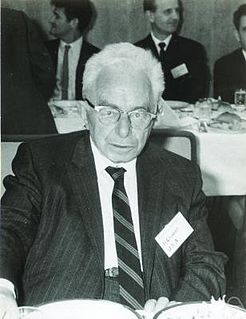A Quote by Max Ernst
Painting is neither decorative amusement, nor the plastic invention of felt reality; it must be every time: invention, discovery, revelation.
Quote Topics
Related Quotes
It was good of Friedrich Nietzsche to declare God dead - I declare that he has never been born. It is a created fiction, an invention, not a discovery. Do you understand the difference between invention and discovery? A discovery is about truth, an invention is manufactured by you. It is man-manufactured fiction.
The Bible must be the invention of either good men or angels, bad men or devils, or of God. It could not be the invention of good men or angels, for they neither would or could make a book, and tell lies all the time they were writing it, saying, 'Thus saith the Lord,' when it was their own invention. It could not be the invention of bad men or devils, for they would not make a book which commands all duty, forbids all sin, and condemns their souls to hell for all eternity. Therefore, I draw this conclusion, that the Bible must be given by divine inspiration.
Most loverspicture to themselves, in their mistresses, a secret reality, beyond and different from what they see every day. They are in love with somebody else--their own invention. And sometimes there is a secret reality; and sometimes reality and appearance are the same. The discovery, in either case, is likely to cause a shock.
Reality is neither subjective nor objective, neither mind nor matter, neither time nor space. These divisions need somebody to happen to, a conscious separate center. But reality is all and nothing, the totality and the exclusion, the fullness and the emptiness, fully consistent, absolutely paradoxical. You cannot speak about it, you can only lose yourself in it.
...those experiments be not only esteemed which have an immediate and present use, but those principally which are of most universal consequence for invention of other experiments, and those which give more light to the invention of causes; for the invention of the mariner's needle, which giveth the direction, is of no less benefit for navigation than the invention of the sails, which give the motion.







































